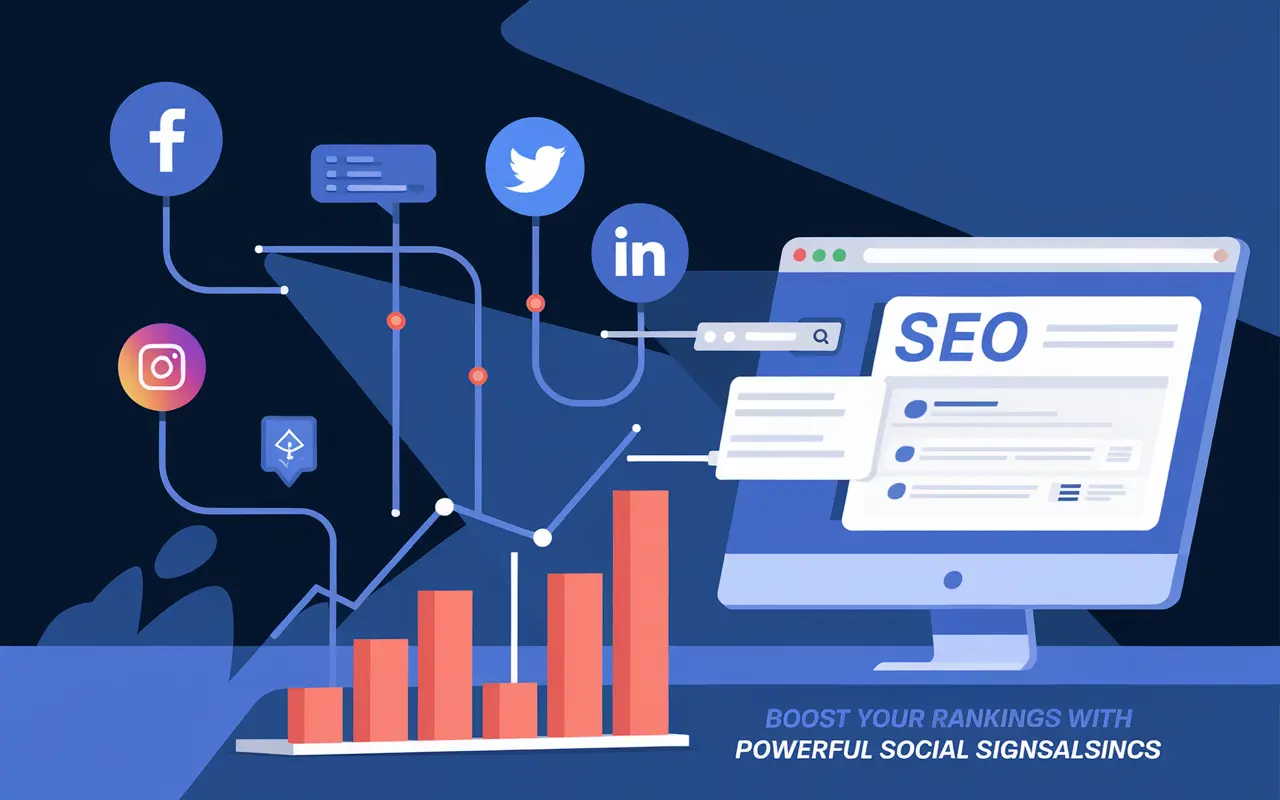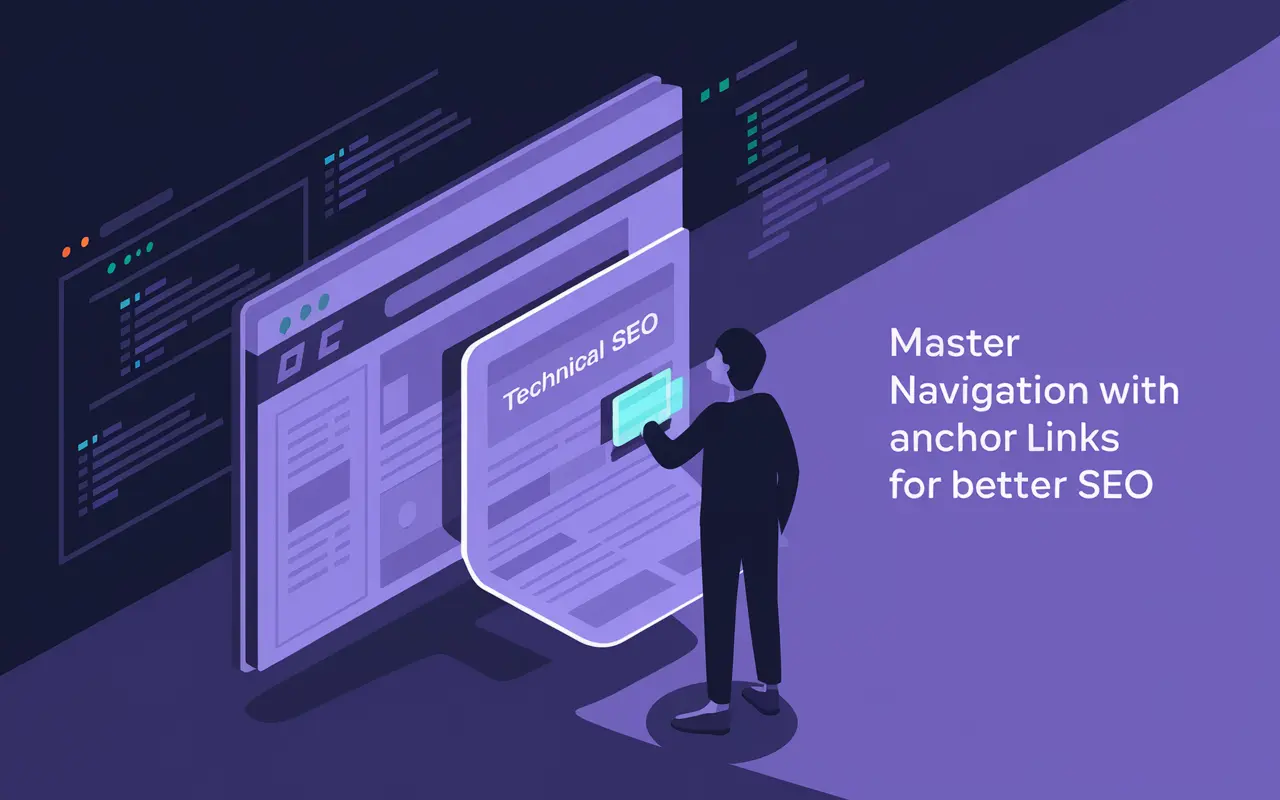Understanding Social Signals: What They Are and Why They Matter
Social Signals refer to the collective engagement metrics—such as likes, shares, comments, tweets, and pins—that a web page or brand receives across various social media channels. These interactions indicate how users perceive, engage with, and endorse your brand content across platforms like Facebook, Twitter, LinkedIn, Instagram, and others.
In the realm of SEO services, social signals serve as indirect ranking factors. While Google has stated they aren’t direct ranking elements, data shows that high social media engagement powers content discoverability, sustains referral traffic, and improves user behavior metrics (like time-on-site), which collectively contribute to SEO performance.
Key Takeaway
Social Signals influence SEO indirectly by amplifying content distribution, increasing brand visibility, and improving essential engagement metrics that search engines consider for organic rankings.
Why Social Signals Are Crucial for SEO Success
Incorporating Social Signals into your SEO strategy can significantly impact digital visibility and user engagement. Here’s how:
1. Boosts Content Reach and Organic Visibility
Each time someone shares your content on social media, it can reach thousands organically. This increased exposure often leads to more site visits and potential backlinks, which are key SEO ranking factors.
2. Enhances User Engagement Metrics
Search engines like Google may not use social signals directly, but they measure user behavior influenced by these signals. High engagement rates often correlate with longer dwell time, lower bounce rates, and frequent return visits—indicators of quality content.
3. Builds Authority and Brand Recognition
Strong social signals create brand authority in your niche. When users consistently see your content shared by peers or influencers, your trust and domain authority naturally build over time, helping your SEO and branding simultaneously.
Best Practices to Leverage Social Signals for SEO
- Share High-Quality, Relevant Content: Publish content that educates, entertains, or solves problems for your audience to encourage natural sharing.
- Use Eye-Catching Visuals: Visual content receives more likes and shares. Utilize infographics, images, and videos to enhance engagement.
- Post at Optimal Times: Analyze audience behavior and schedule posts when they are most active to maximize reach and interactions.
- Engage With Your Community: Reply to comments, participate in discussions, and thank users for sharing to encourage more activity.
- Add Social Sharing Buttons: Make it easy for users to share your content across platforms by integrating visible, fast-loading sharing options directly into your website or blog.
- Leverage Influencer Collaborations: Partner with industry influencers to amplify your content’s exposure and reputation.
How Social Signals Influence the SEO Process
1. Increased Indexation Speed
Social shares can lead to faster indexation of content, especially when links are shared multiple times and generate high traffic. This tells search engines your content has relevance and timeliness.
2. Referral Traffic and Backlink Potential
High-performing social content often attracts backlinks from bloggers, journalists, or webmasters who find your shared content valuable. These backlinks are core to building domain authority.
3. Enhanced Trust Signals
A robust social presence signals brand legitimacy and credibility. While not a direct ranking factor, trust is a key metric Google evaluates when ranking competitive content.
| Social Signal | SEO Impact | Engagement Type |
|---|---|---|
| Shares | Improved visibility and potential backlinks | Distribution |
| Likes/Reactions | Social proof and credibility | Validation |
| Comments | Increased content dwell time | Engagement |
| Mentions/Tags | Referral traffic and brand exposure | Connection |
Case Study: Social Engagement Driving Organic Growth
Challenge: Low Organic Traffic Despite Quality Content
A growing SaaS startup was consistently publishing valuable industry content but wasn’t seeing expected growth in organic search traffic.
Strategy: Leveraging Social Signals to Improve Discoverability
We implemented a content amplification strategy by partnering with influencers on LinkedIn and running engaging Twitter threads tied directly to on-site blogs. Share buttons and CTAs encouraged followers to engage with and re-share content.
Results: 73% Increase in Organic Traffic in 6 Months
The increased social shares improved indexation speed and backlink acquisition. Organic sessions rose by 73%, while the bounce rate decreased by 18%, indicating more engaged users landing via improved SERP positions.
Common Mistakes to Avoid with Social Signals
- Thinking More Followers Equals Better SEO: Fake followers or non-engaging audiences won’t help your SEO. Focus on quality engagement instead.
- Not Aligning Content Across Channels: Inconsistent messaging confuses users. Ensure your content message stays uniform across channels.
- Failing to Track Performance: Skipping analytics means missed opportunities to optimize. Use tools like UTM codes and Google Analytics to monitor traffic from social media.
- Ignoring Niche Platforms: Only focusing on big platforms like Facebook may cause you to miss powerful niche networks with high-impact audiences.
Related SEO Glossary Terms
Understanding Social Signals is easier when seen as part of a larger SEO framework. Here are related terms:
- Off-Page SEO: Covers activities done outside the website that influence its ranking, where Social Signals play a major role.
- Content Marketing: High-quality content drives social shares that build Social Signals.
- Backlinks: Strong Social Signals lead to better content discovery and potential backlinks.
FAQs About Social Signals
No, Google has clarified that Social Signals like likes or shares are not direct ranking factors, but they influence other metrics that affect rankings.
Platforms like Facebook, Twitter, LinkedIn, Instagram, and Pinterest all contribute to social signals, depending on your audience and niche.
You can use tools like Google Analytics, UTM parameters, BuzzSumo, and social media analytics platforms to trace how social content drives traffic and engagement.
No. Artificially inflating your Social Signals often results in poor engagement and can damage your brand’s authenticity. Search engines value quality, genuine engagement.
Conclusion: Don’t Ignore the Power of Social Signals
While Social Signals may not be a direct ranking signal, their influence on SEO is undeniable. Through better content visibility, improved user engagement, and increased referral traffic, businesses can see exponential gains in organic performance by fostering a strong, consistent social media presence.
Explore more about implementing holistic SEO strategies at our SEO Services page and turn your social presence into a conversion-driving asset.






